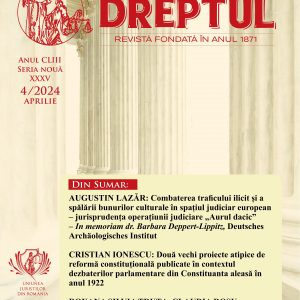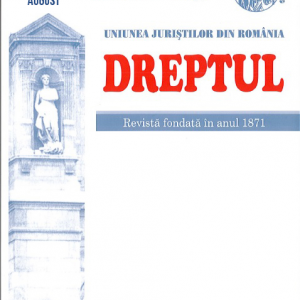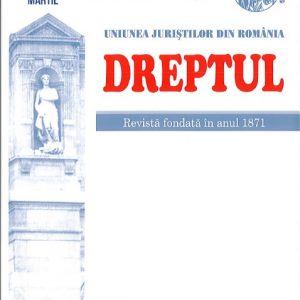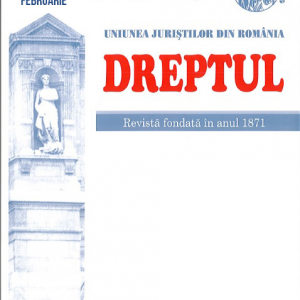-
 Puțini sunt termenii din vocabularul științelor politice care să fi primit atât de multe definiții și caracterizări, de-a lungul timpului, cum este democrația. Fragmentul din Declarația Universală a Democrației pe care vi-l propun reflecției surprinde două aspecte ale termenului de democrație: unul instituțional, raportat la constituirea prin proceduri electorale democratice a instituțiilor reprezentative ale unui stat, la nivel național și local, și altul funcțional, raportat la puterea reală a poporului și mijloacele eficiente de care acesta poate dispune pentru a contribui, desigur, prin reprezentare, la activitatea legislativă și de control asupra acțiunilor Guvernului. Dacă primul aspect este relativ ușor de realizat, deși cunoașteți dovedite fraude electorale la nivel central și local, cel de-al doilea merită o atenție mai specială, întrucât nu cred că există un cetățean-alegător, grupuri de cetățeni-alegători, care să fie pe deplin convinși că sunt reprezentați, în mod real, în activitatea legislativă și, mai ales, în exercitarea funcției Parlamentului de control parlamentar.
Puțini sunt termenii din vocabularul științelor politice care să fi primit atât de multe definiții și caracterizări, de-a lungul timpului, cum este democrația. Fragmentul din Declarația Universală a Democrației pe care vi-l propun reflecției surprinde două aspecte ale termenului de democrație: unul instituțional, raportat la constituirea prin proceduri electorale democratice a instituțiilor reprezentative ale unui stat, la nivel național și local, și altul funcțional, raportat la puterea reală a poporului și mijloacele eficiente de care acesta poate dispune pentru a contribui, desigur, prin reprezentare, la activitatea legislativă și de control asupra acțiunilor Guvernului. Dacă primul aspect este relativ ușor de realizat, deși cunoașteți dovedite fraude electorale la nivel central și local, cel de-al doilea merită o atenție mai specială, întrucât nu cred că există un cetățean-alegător, grupuri de cetățeni-alegători, care să fie pe deplin convinși că sunt reprezentați, în mod real, în activitatea legislativă și, mai ales, în exercitarea funcției Parlamentului de control parlamentar. -
 In this study the authors examine the issue regarding the ways to determine lineage and the recognition of the child (art. 408 and art. 415 and the following of the new Romanian Civil Code - Law No. 287/2009, republished on July 15, 2011 and entered into force on October 1st, 2011) noting the differences in relation to the previous regulation (the Family Code in force from February 1st, 1954 until September 30, 2011); in this context, on the one hand, the positive aspect of the new regulations is highlighted, and on the other hand, a series of lex ferenda proposals are also being carried out.
In this study the authors examine the issue regarding the ways to determine lineage and the recognition of the child (art. 408 and art. 415 and the following of the new Romanian Civil Code - Law No. 287/2009, republished on July 15, 2011 and entered into force on October 1st, 2011) noting the differences in relation to the previous regulation (the Family Code in force from February 1st, 1954 until September 30, 2011); in this context, on the one hand, the positive aspect of the new regulations is highlighted, and on the other hand, a series of lex ferenda proposals are also being carried out. -

-
 In order to achieve the objective of free circulation of civil and commercial judgments, as part of the process of judicial cooperation in civil matters, it was adopted the Regulation (EU) No 1215/2012 of the European Parliament and of the Council of 12 December 2012 on jurisdiction and the recognition and enforcement of judgments in civil and commercial matters which shall apply only to actions brought, to authentic instruments formally drawn up or registered and to court settlements approved or concluded on or after 10 January 2015. In spite of the fact that the Council Regulation (EC) No 44/2001 of 22 December 2000 which regulated the same matters, has significantly contributed to the development of an area of the free circulation of judgments, certain differences between national rules governing jurisdiction and recognition of judgments have been constantly hindering the effectiveness of the access to justice of the Union’s members. In regard to such difficulties, the Regulation (EC) No 44/2001 shall be superseded by Regulation (EU) No 1215/2012 whose provisions are aimed at unifying the rules of conflicts of jurisdiction in civil and commercial matters and at ensuring rapid and simple recognition and enforcement of judgments given in a Member State. For that purpose, the new Regulation (EU) No 1215/2012 has brought, in the matters of recognition and enforcement, not only necessary clarifications but also substantial changes, such as the exclusion of the requirement of a declaration of enforceability. Moreover, a short analysis of its provisions is required regarding several aspects, such as the refusal of recognition and enforcement, the applicable procedure, the transitional provisions and the circumstances in which Regulation (EC) No 44/2001 shall continue to apply even after 10 January 2015.
In order to achieve the objective of free circulation of civil and commercial judgments, as part of the process of judicial cooperation in civil matters, it was adopted the Regulation (EU) No 1215/2012 of the European Parliament and of the Council of 12 December 2012 on jurisdiction and the recognition and enforcement of judgments in civil and commercial matters which shall apply only to actions brought, to authentic instruments formally drawn up or registered and to court settlements approved or concluded on or after 10 January 2015. In spite of the fact that the Council Regulation (EC) No 44/2001 of 22 December 2000 which regulated the same matters, has significantly contributed to the development of an area of the free circulation of judgments, certain differences between national rules governing jurisdiction and recognition of judgments have been constantly hindering the effectiveness of the access to justice of the Union’s members. In regard to such difficulties, the Regulation (EC) No 44/2001 shall be superseded by Regulation (EU) No 1215/2012 whose provisions are aimed at unifying the rules of conflicts of jurisdiction in civil and commercial matters and at ensuring rapid and simple recognition and enforcement of judgments given in a Member State. For that purpose, the new Regulation (EU) No 1215/2012 has brought, in the matters of recognition and enforcement, not only necessary clarifications but also substantial changes, such as the exclusion of the requirement of a declaration of enforceability. Moreover, a short analysis of its provisions is required regarding several aspects, such as the refusal of recognition and enforcement, the applicable procedure, the transitional provisions and the circumstances in which Regulation (EC) No 44/2001 shall continue to apply even after 10 January 2015. -
 The procedure of payment order has been regulated as a synthesis, but also as a reformation of the two previous procedures materialized in the Government Ordinance No 5/2001 on the procedure of the payment summons and the Government Emergency Ordinance No 119/2007 on the measures for combating the delay of the performance of the payment obligations resulting from the contracts between professionals. In its legislative work, by the new Civil Procedure Code, the legislator has not only achieved a fusion between the two normative acts, but it has also inserted novelty legislative solutions, bringing numerous amendments to the procedure and following its adjustment to the current legal, social and economic realities, in the attempt to harmonize the Romanian legislation with the European one. This study makes a detailed analysis of the nature of the procedure of payment order, of the characters and of the way it was conducted within the current normative framework, as well as of the vast judicial practice, by identifying the novelty elements of the procedure regulated by the new Civil Procedure Code, which – beyond the guaranteed additional accessibility and efficiency – require clarifications and specifications.
The procedure of payment order has been regulated as a synthesis, but also as a reformation of the two previous procedures materialized in the Government Ordinance No 5/2001 on the procedure of the payment summons and the Government Emergency Ordinance No 119/2007 on the measures for combating the delay of the performance of the payment obligations resulting from the contracts between professionals. In its legislative work, by the new Civil Procedure Code, the legislator has not only achieved a fusion between the two normative acts, but it has also inserted novelty legislative solutions, bringing numerous amendments to the procedure and following its adjustment to the current legal, social and economic realities, in the attempt to harmonize the Romanian legislation with the European one. This study makes a detailed analysis of the nature of the procedure of payment order, of the characters and of the way it was conducted within the current normative framework, as well as of the vast judicial practice, by identifying the novelty elements of the procedure regulated by the new Civil Procedure Code, which – beyond the guaranteed additional accessibility and efficiency – require clarifications and specifications. -
 Cititorii Dreptului au luat cunoștință de proiectul de lege relativ la noua modificare a legii Curții de Casație, în scopul reînființării recursului direct în materie de contencios administrativ, în expunerea de motive a d-lui M. Cantacuzino, ministrul justiției, ce am distribuit în supliment. Publicăm aici și raportul d-lui Petre Missir, care este un document luminos asupra legii propuse, aflată în discuția Senatului.
Cititorii Dreptului au luat cunoștință de proiectul de lege relativ la noua modificare a legii Curții de Casație, în scopul reînființării recursului direct în materie de contencios administrativ, în expunerea de motive a d-lui M. Cantacuzino, ministrul justiției, ce am distribuit în supliment. Publicăm aici și raportul d-lui Petre Missir, care este un document luminos asupra legii propuse, aflată în discuția Senatului. -
 The article analyzes the cassation recourse, which is an extraordinary judicial remedy in the criminal trial, a reformative and devolutive judicial remedy, in principle a non-suspensive of enforcement and extensive judicial remedy. The purpose of the cassation recourse is to ensure a uniform practice at the level of the entire country. In order to achieve this purpose, the legislator has expressly provided the reasons for which a cassation recourse may be promoted, the jurisdiction for settlement, the subjects for which the possibility to exercise the judicial remedy is recognized and the solutions which the court can pronounce. The usefulness of the cassation recourse is fully emphasized, given the fact that the recourse would no longer exist within the Romanian criminal procedure system subsequently to the entry into force of the new Criminal Procedure Code.
The article analyzes the cassation recourse, which is an extraordinary judicial remedy in the criminal trial, a reformative and devolutive judicial remedy, in principle a non-suspensive of enforcement and extensive judicial remedy. The purpose of the cassation recourse is to ensure a uniform practice at the level of the entire country. In order to achieve this purpose, the legislator has expressly provided the reasons for which a cassation recourse may be promoted, the jurisdiction for settlement, the subjects for which the possibility to exercise the judicial remedy is recognized and the solutions which the court can pronounce. The usefulness of the cassation recourse is fully emphasized, given the fact that the recourse would no longer exist within the Romanian criminal procedure system subsequently to the entry into force of the new Criminal Procedure Code. -
 This study deals with aspects related to the procedure of recourse in cassation, which involves two stages: the admissibility in principle, which plays the role of a filter of recourses in cassation, and the examination of the recourse in cassation after the admission in principle. There are presented the effects of the recourse and the solutions that can be given for its settlement, underlining their lack of correlation with the cases of recourse in cassation, where appropriate, in the light of the decisions of the High Court of Cassation and Justice. Likewise, the decisions of the Constitutional Court and the legislative amendments operated so far concerning the trial procedure of the recourse in cassation will be considered.
This study deals with aspects related to the procedure of recourse in cassation, which involves two stages: the admissibility in principle, which plays the role of a filter of recourses in cassation, and the examination of the recourse in cassation after the admission in principle. There are presented the effects of the recourse and the solutions that can be given for its settlement, underlining their lack of correlation with the cases of recourse in cassation, where appropriate, in the light of the decisions of the High Court of Cassation and Justice. Likewise, the decisions of the Constitutional Court and the legislative amendments operated so far concerning the trial procedure of the recourse in cassation will be considered. -
 The new legislative context was a strong argument, mainly, for reconfiguring the recourse, which is not a new legal remedy for our system of law, the cassation recourse being actually built on the structure of the recourse of the previous Criminal Procedure Code, with no fundamental differences in this regard. Article 433 of the Criminal Procedure Code expressly provides the purpose of the cassation recourse, which seeks to subject to the High Court of Cassation and Justice the examination, under the terms of the law, of the conformity of the challenged judgment with the applicable rules of law. However, the cassation recourse aims at ensuring a uniform practice at the level of the entire country. There are expressly provided the judgments which can be challenged by means of the cassation recourse, as well as those that are not subject to this extraordinary legal remedy. In relation to the specificity of this extraordinary legal remedy, the code imposes strict conditions on the contents of the application for cassation recourse, the holders and the time limit for bringing this action, aspects presented within the paper, being followed up all the legislative amendments that have occurred so far.
The new legislative context was a strong argument, mainly, for reconfiguring the recourse, which is not a new legal remedy for our system of law, the cassation recourse being actually built on the structure of the recourse of the previous Criminal Procedure Code, with no fundamental differences in this regard. Article 433 of the Criminal Procedure Code expressly provides the purpose of the cassation recourse, which seeks to subject to the High Court of Cassation and Justice the examination, under the terms of the law, of the conformity of the challenged judgment with the applicable rules of law. However, the cassation recourse aims at ensuring a uniform practice at the level of the entire country. There are expressly provided the judgments which can be challenged by means of the cassation recourse, as well as those that are not subject to this extraordinary legal remedy. In relation to the specificity of this extraordinary legal remedy, the code imposes strict conditions on the contents of the application for cassation recourse, the holders and the time limit for bringing this action, aspects presented within the paper, being followed up all the legislative amendments that have occurred so far. -
 This paper provides a legal analysis of rules in the new (Romanian) Civil Procedure Code on ensuring a unitary judicial practice, i.e. the appeal in the interest of law and, respectively, the referral to the High Court of Cassation and Justice for a preliminary ruling on the settlement of matters of law. While the appeal in the interest of law existed also in the previous Civil Procedure Code, the referral to the High Court of Cassation and Justice is a new procedure, not regulated by the previous Civil Procedure Code.
This paper provides a legal analysis of rules in the new (Romanian) Civil Procedure Code on ensuring a unitary judicial practice, i.e. the appeal in the interest of law and, respectively, the referral to the High Court of Cassation and Justice for a preliminary ruling on the settlement of matters of law. While the appeal in the interest of law existed also in the previous Civil Procedure Code, the referral to the High Court of Cassation and Justice is a new procedure, not regulated by the previous Civil Procedure Code. -
 The Romanian Civil Procedure Code currently in force regulates, among others, the cross-appeal and the caused appeal, but these remedies are not regulated in the hypothesis of the (extraordinary) second appeal. The new Romanian Civil Procedure Code (published on 15 June 2010, but not yet in force) enacts both the caused cross-appeal and the caused cross-second appeal. After presenting the new regulation, the authors consider that, while the cross-/caused appeal is justified (since the appeal is a devolutionary remedy), the cross-/caused second appeal is not justified, since it is not compatible with the specific nature of the extraordinary second appeal.
The Romanian Civil Procedure Code currently in force regulates, among others, the cross-appeal and the caused appeal, but these remedies are not regulated in the hypothesis of the (extraordinary) second appeal. The new Romanian Civil Procedure Code (published on 15 June 2010, but not yet in force) enacts both the caused cross-appeal and the caused cross-second appeal. After presenting the new regulation, the authors consider that, while the cross-/caused appeal is justified (since the appeal is a devolutionary remedy), the cross-/caused second appeal is not justified, since it is not compatible with the specific nature of the extraordinary second appeal. -

